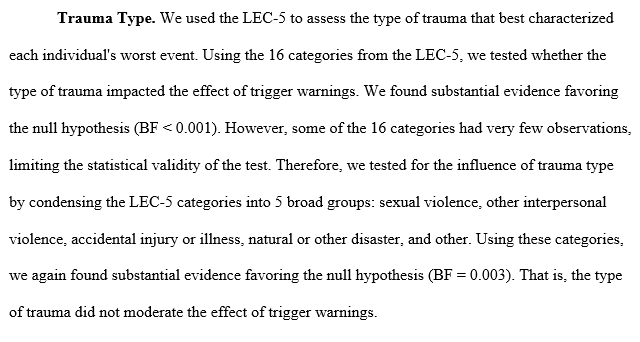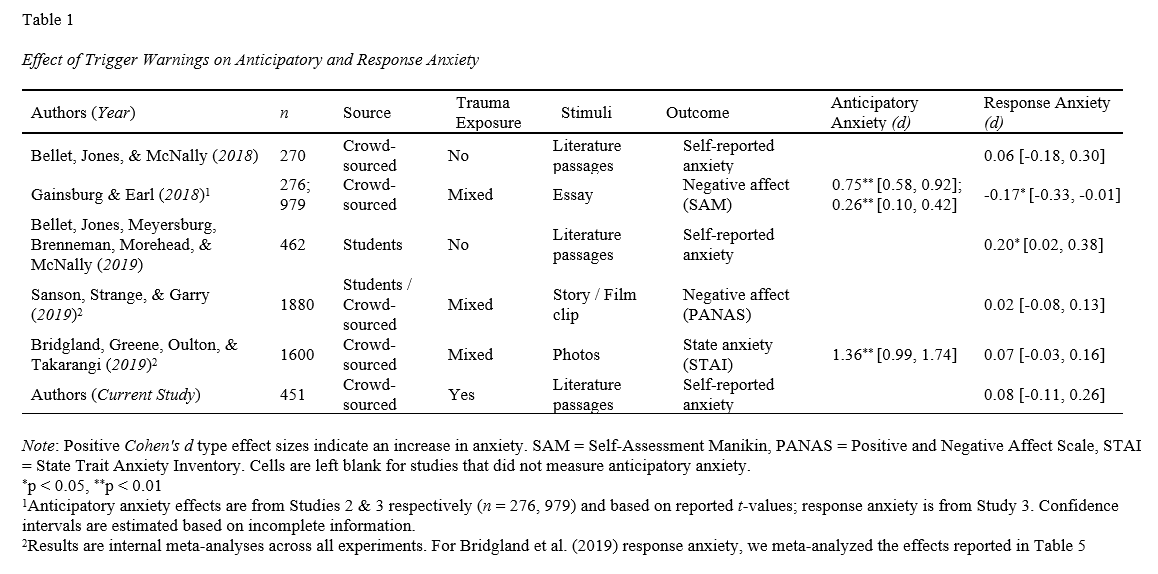
Our new preregistered paper on trigger warnings in trauma survivors was just released as a preprint! We find that no matter how you slice it, trigger warnings just don't help. osf.io/axn6z (1/8)
How do they affect trauma survivors' anxiety? No effect. People who reported a PTSD diagnosis? Still no effect. People who met the clinical threshold for PTSD? Anxiety actually *increased* a bit. (2/8) 

Well, what if we look at only the passages that actually matched the content of people's trauma? That, is the passages that were actually triggering? Again, trigger warnings don't help. It didn't matter what type of trauma participants had experienced -- still no effect. (3/8) 

If you've been paying attention to research on trigger warnings, this shouldn't be too surprising. Across all groups, trigger warnings seem to *increase* anticipatory anxiety, and have trivial/null effects on anxiety once participants actually see the upsetting material. (4/8) 

Finally, a preregistered test found that trigger warnings increased survivor's view of their trauma as integral to their identity (this is known as "event centrality"). That's...not good. (5/8) 

Higher event centrality prospectively predicts worse PTSD symptoms. One study even found that decreasing event centrality mediated treatment outcomes. This indicates that trigger warnings could be directly *countertherapeutic* (this effect was pretty small though) (6/8)
The idea that trigger warnings make trauma seem more central seems to parallel the effect found by our previous study (increase in perceived vulnerability). That said, the perceived vulnerability effect did NOT replicate in this sample (7/8) sciencedirect.com/science/articl…
The takeaway: do trigger warnings harm? Maybe-- it's not totally clear. Do they help? Almost certainly not. Should you use them? The evidence pretty firmly suggests they don't work. So unless you also use horoscopes -- probably not. (8/8)
@GadSaad -- here is the paper on trigger warnings that this table comes from!
https://twitter.com/paytonjjones/status/1143895191603961856
• • •
Missing some Tweet in this thread? You can try to
force a refresh




